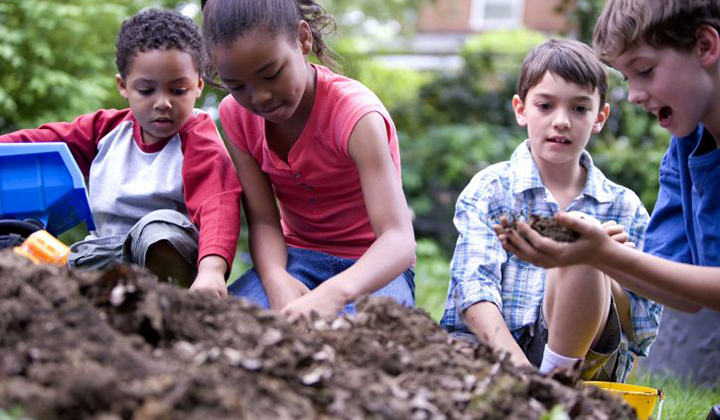What if ‘play’ was the key to unlocking talent?
Latest Posts • December 14, 2015

Many parents find themselves on a well-meaning mission to help their kids discover their core talent and passion – the thing they’re good at, and perhaps even really great at.
Haven’t we all asked ourselves, “what is my purpose?”
“Follow your bliss…” is something once said by Joseph Campbell. Follow your bliss, and you’ll live a happy and fulfilling life.
But to follow your bliss, you have to know your bliss, and this is why so many parents embark on a passion-seeking journey. What they really want for their children is to live a happy and fulfilled life.
Soccer on Mondays, piano every Thursday and new activities every season… Parents offer their kids a wide variety of experiences and opportunities, hoping to find ‘the one’ — the special talent that gives their children a competitive edge, and the grit, perseverance and motivation to live a successful and blissful life.
I’m here to tell you it doesn’t have to be this hard – this kind of talent seeking can actually lead to overwhelmed children and exhausted families.
According to Dr. Stuart Brown, author, psychologist and pioneer in play research (who I’ve also written about here and here, because you can never say enough about play), there’s a much easier way.
He believes just by observing our children in play, and paying close attention to what it is they like to do while playing, we’ll recognize the key to their innate talents.
He says, “play is nature telling us who we are and what we are. Going back to what gives joy is to allow us to get a glimpse, a clue, on what our innate talent is.”
Just like Campbell, Brown believes that people can find the path in life to fuel their spirit, touch them deeply and make them most happy. He says “… if you go back to your earliest emotion-laden, visual, and visceral memories of what really gave you joy, you’ll have some sense of what was natural for you and where your talents lie.”
Maria Montessori would agree. She also holds a belief that every child is gifted, and all we have to do is “follow the child” and observe. Some children’s gifts are more apparent and easy to see than others, so observation becomes the most vital teaching tool in the Montessori process. It allows Montessori teachers not only to gain insights into children’s development and needs, but also their strengths, interests and natural talents.
During play, children naturally demonstrate what they’re drawn to, revealing their uniqueness and the character of their individuality. This in turn helps us to discover their inherent talents.
And by the way, this way of understanding play also applies to adults!
Perhaps you feel chained to your desk and would much rather be out playing in the woods. You might want to follow Brown’s encouragement and go back to the play of your childhood to explore what brought you the most joy.
Here’s the thing though — and this is true for adults and children alike — let’s not mistake choosing the path that’s most pleasurable or fun as living a life of play.
Brown points out that Campbell’s famous advice sometimes needs a little extra clarification, because “some people took it to mean they should forgo anything that is un-pleasurable or distasteful”, and just live a life of pure fun. In reality, the pathway to a playful, fulfilled life can also be through challenging or difficult experiences. “If your bliss is just pleasure and excitement, then you are on the wrong path,” Campbell would say, “Sometimes pain can be bliss.” (Stuart Brown in ‘Play’, who has actually worked with Campbell for a number of years.)
Look no further than a marathoner or a triathlete to see how true this is!
So what’s your favorite ‘play’?




Leave A Comment